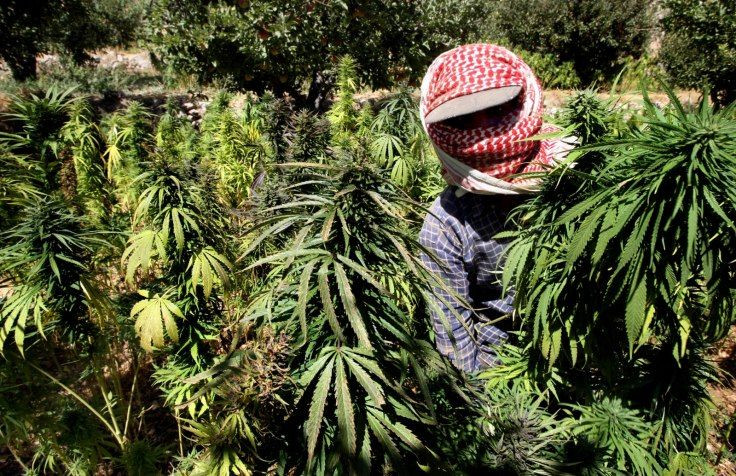Lebanese Marijuana Farmers Record Bumper Crop, As Syrian Civil War Occupies Authorities

Marijuana farmers in Lebanon claim that with authorities distracted by the fallout from the civil war in neighboring Syria, they have been able to reap bumper harvests of the drug.
Previously, the Lebanese army would burn fields of the drug grown to be exported and sold on the streets of Europe, but with the unrest in Syria causing thousands to flee into Lebanon leaving the army's hands full, farmers have been free to cultivate the crop.
"This year we had a good year," Ali Nasri Shamas, a local marijuana kingpin told the Telegraph.
He said that farmers had stockpiled weapons, and would defend their crop from authorities.
"We are selling hashish, and if anyone from the government tries to come close to it, we'll kill them."
Swaths of agricultural land in the country which were once used to cultivate beet crops have been turned over to marijuana production, with Shamas buying the produce of small-scale farmers, as well as employing his own growers, and processing the crop in a secret plant in the Bekaa valley.
Shamas said that after being made into hashish, it is exported to nearby countries, including Egypt and Syria, with the war having loosened Syrian border controls. But some is sold to European suppliers, including retailers in Amsterdam, where the drug is legal, and the U.K.
He said that there was now such an abundant supply of the drug that prices had fallen, and that farmers would pocket $1,200 two years ago, but now taking only a quarter of that: $350.
However, he said that his main farmers still stood to make around half a million dollars a year.
Lebanon became a hub for the production of drugs during its 1975-1990 civil war, and Shamas said that subsequent political corruption and failed attempts to replace marijuana with other crops had left the region impoverished.
This week, Walid Jumblatt, a prominent politician from the country's Druze minority, called for the cultivation of the drug to be legalized.
"It's time to allow hash to be grown and to overturn arrest warrants against people sought for doing so," the veteran politician wrote in Arabic on his Twitter account, reports AFP.











